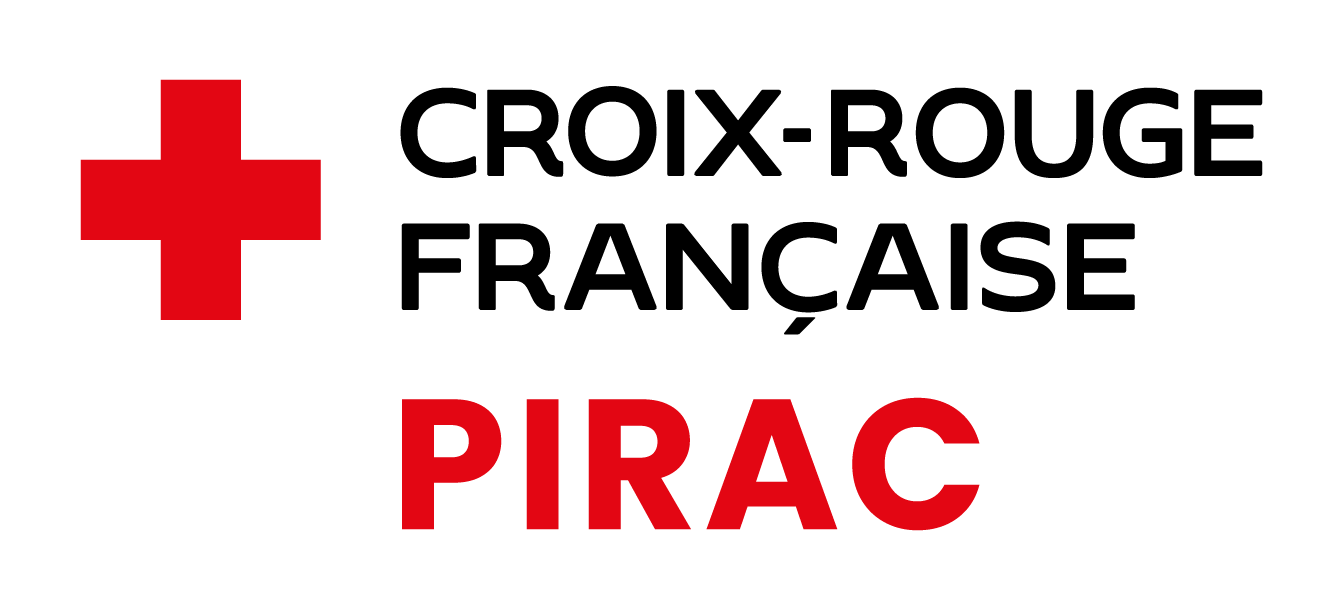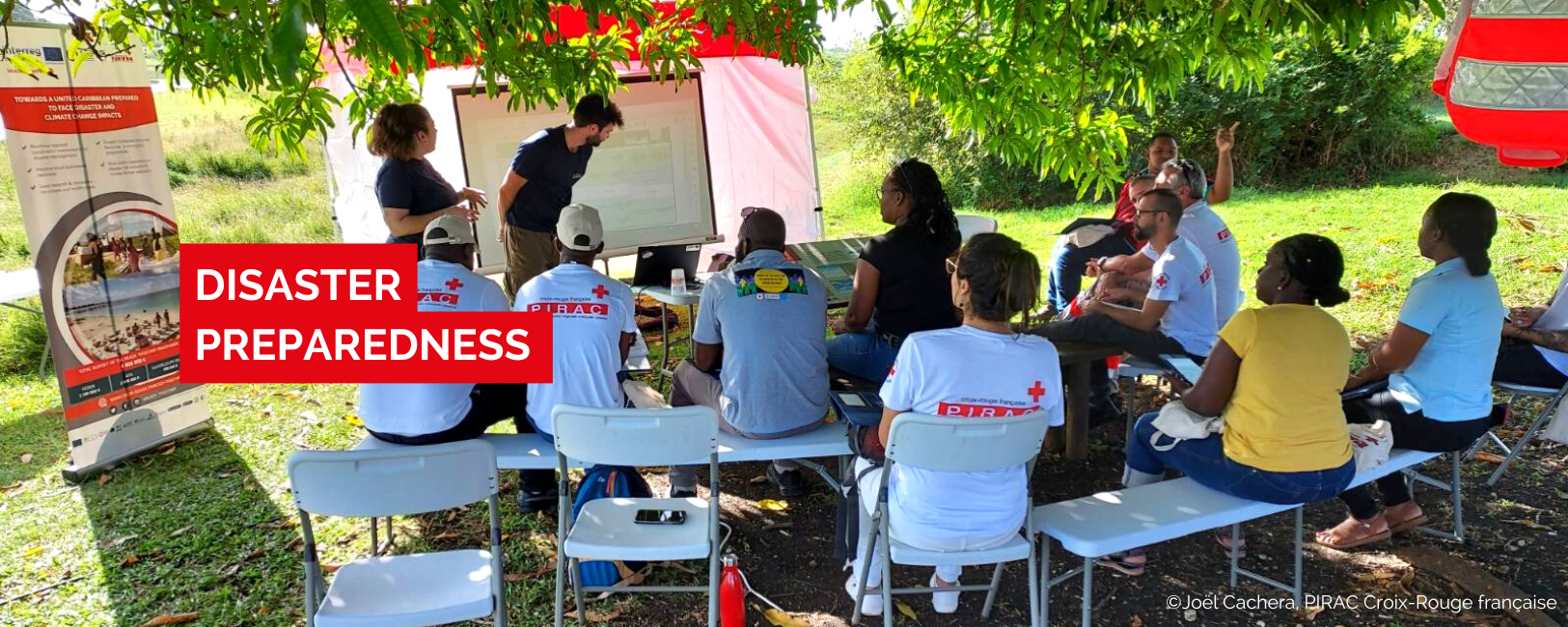
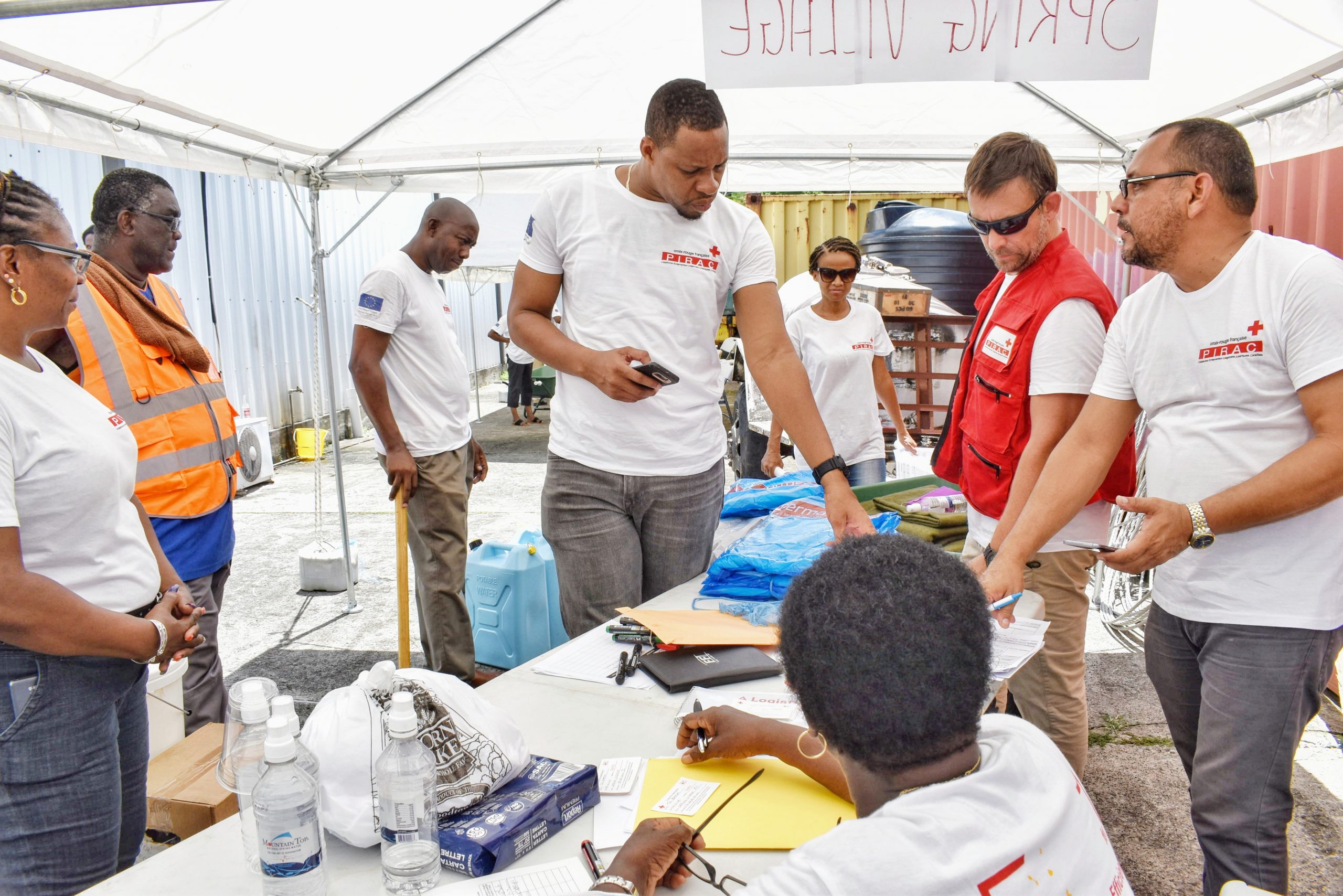
Reducing the vulnerability of populations requires that they prepare themselves, individually and collectively, for the occurrence of disasters in order to be able to respond locally.
PIRAC implements disaster preparedness actions for Caribbean communities and populations. This is done through the implementation of disaster risk reduction micro-projects that respond to local needs and priorities. It also involves the participatory creation of community emergency plans, inclusive early warning systems, micro risk mitigation projects and the formation of community risk management committees to prepare communities to cope.
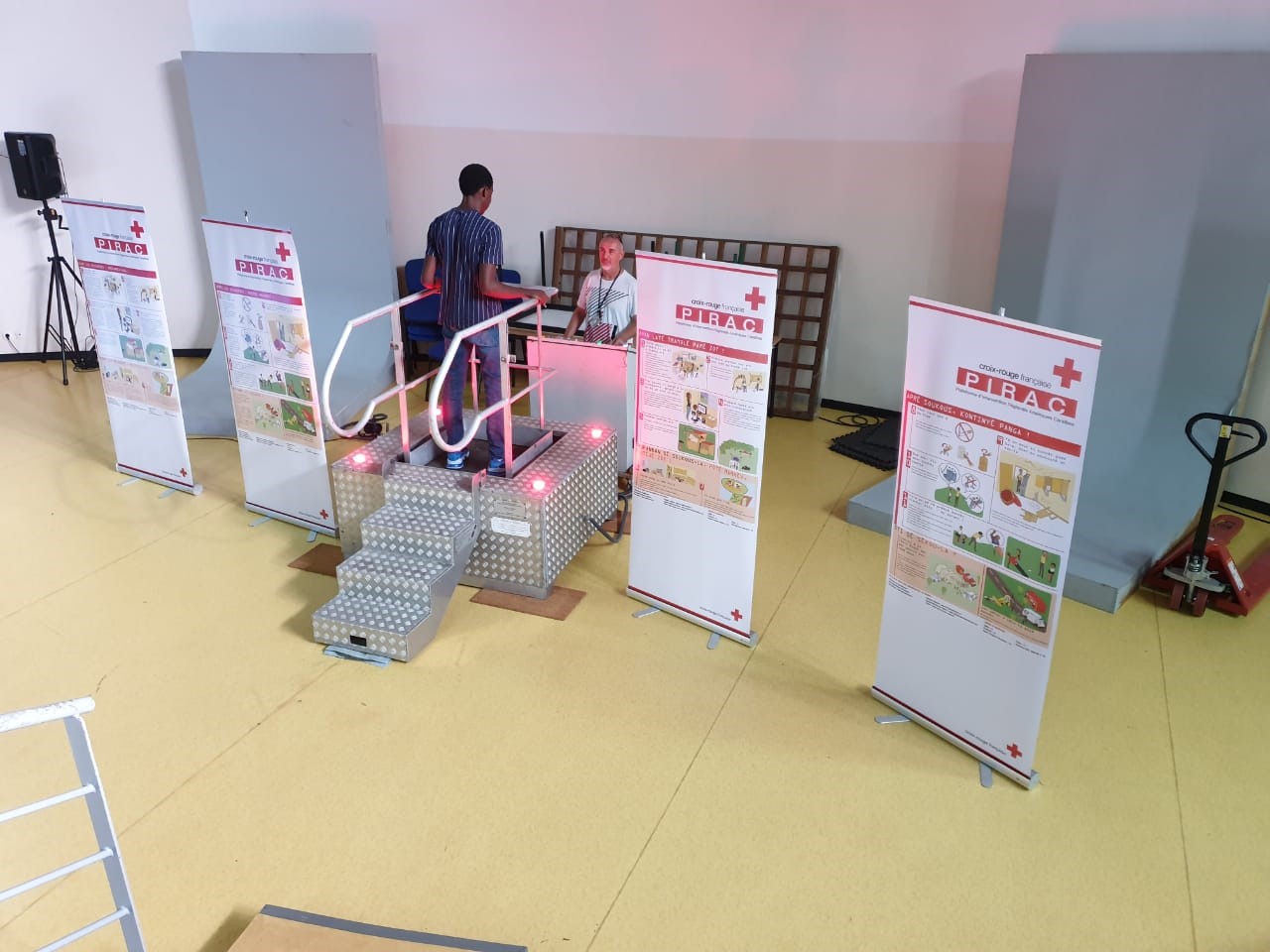
SEISMIC RISK PREPAREDNESS
In the Caribbean, the seismic risk is high. In the event of an earthquake, people must act quickly: the time to safety must be within seconds. Many people have never experienced a significant seismic tremor, which is why PIRAC mobilizes a simulator during its prevention sessions allowing an immersion as close as possible to reality. The trainees are thus prepared in case of real tremors, and will be able to take advantage of the first few seconds which are vital in this type of situation.
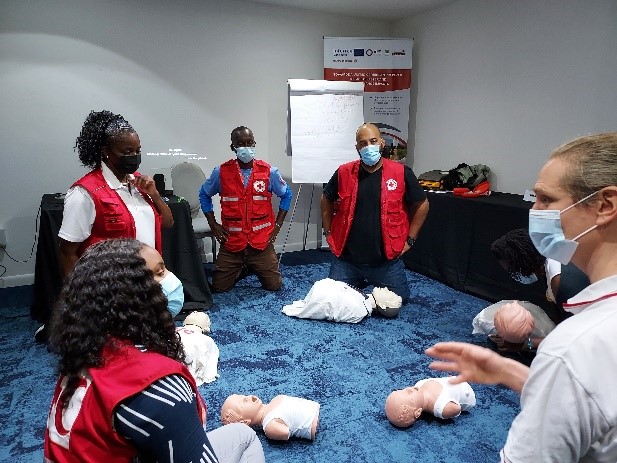
FIRST AID TRAINING
PIRAC delivers international first aid certifications to the Caribbean Red Cross in order to guarantee quality training.
Promoting first aid among the Caribbean populations requires to have in each country quality trainers able to train the populations, taking into account the local specificities (type of risk, perception of the populations, adapted learning methods). PIRAC organizes, with the technical support of CMRPS, regional trainings of First Aid trainers.
In a context where the occurrence of a disaster is a high risk and where access to help may be constrained (roads cut off, ports destroyed, etc.), it is essential to promote first aid skills widely among the population. Everyone in the Caribbean can be called upon to save lives. Following the earthquake of August 14, 2021 that devastated the southern peninsula of Haiti, for example, the people themselves were the first to come to the aid of people trapped under the rubble.
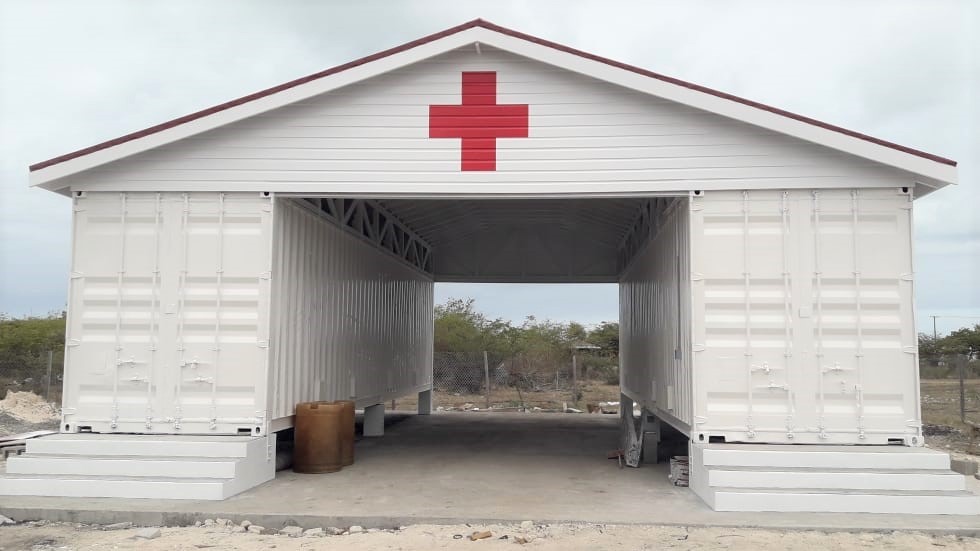
EMERGENCY STOCKS IN SEVERAL LOCATIONS
PIRAC has established a container-based humanitarian warehouse in 2021, using hurricane and earthquake resistant methods, to store emergency supplies close to isolated vulnerable people ready for deployment. Construction techniques have been developed to be low-cost, and many container-based emergency infrastructures have been set up by PIRAC in the Caribbean.
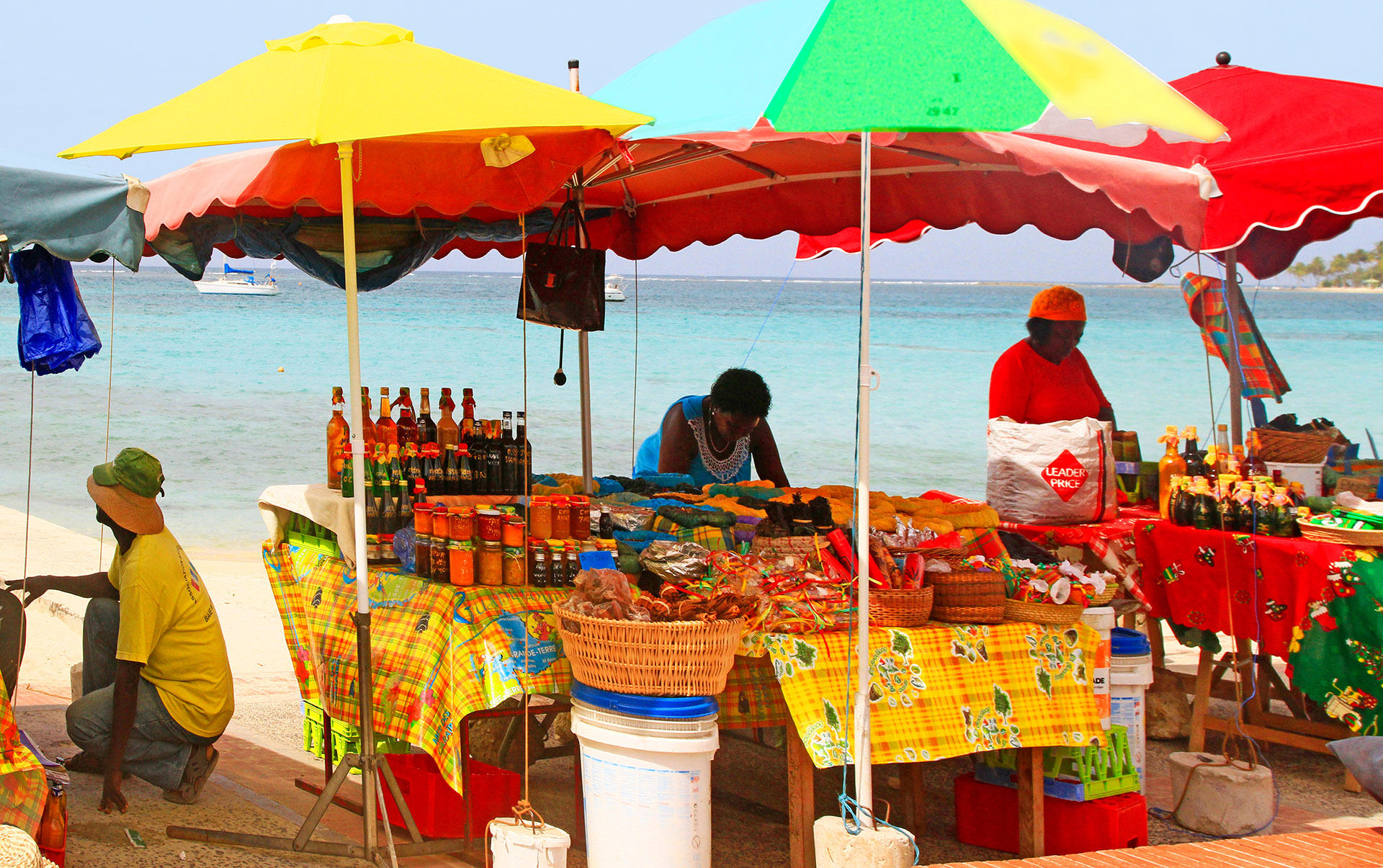
SUPPORT FOR SMALL BUSINESS DISASTER PREPAREDNESS
More than 90% of the companies in the Caribbean have less than 5 employees. Yet these businesses are essential to the local economy. They provide access to income and basic necessities after a disaster. Thus, the resilience of these small businesses is a condition for the resilience of communities as a whole. That is why PIRAC supports small business owners in preparing for disasters and developing their business continuity plans so that they can maintain their operations in the event of a major disaster.
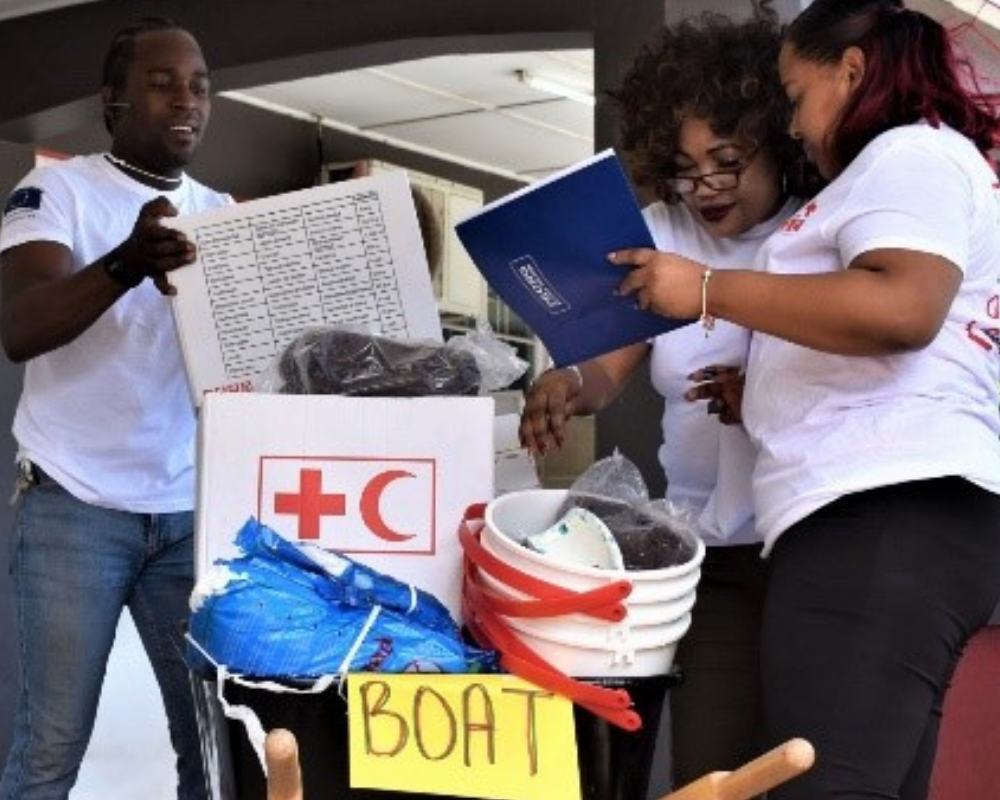
COORDINATION AND HUMANITARIAN COOPERATION IN THE REGION
In a complex regional context where each territory is isolated, improving humanitarian coordination capabilities is important. In Antigua, for example, simulation exercises are organized, either on a tabletop or in real life, to test the emergency organizational schemes that have been put in place, to train teams, and to ensure that aid actions will be carried out effectively for the benefit of the affected populations in the event of a real disaster. Whenever possible, the exercises involve local civil security actors, local authorities and armed forces, in order to work on emergency coordination methods.
